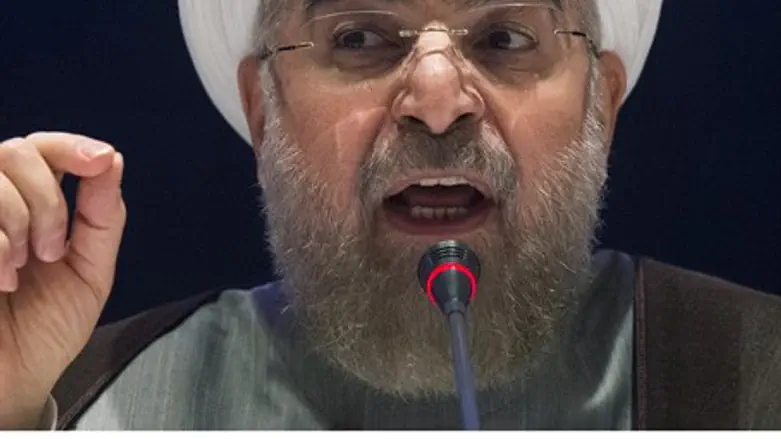
Iran's ultra-conservative weekly "9-Day" was banned on Monday for criticizing the government over its negotiations with world powers on the country's nuclear program, AFP reported.
The state body charged with monitoring the media ruled that the paper had published articles "insulting towards the Imam (Islamic Republic founder Ayatollah Ruhollah) Khomeini and against the regime's nuclear policy", the ISNA news agency said.
"Each step (Foreign Minister Mohammad Javad) Zarif took destroyed 100 kilos of reserves of enriched uranium," the weekly wrote.
ISNA said the comment came after Zarif and his American counterpart Secretary of State John Kerry took a walk in the lakeside Swiss city of Geneva on the sidelines of nuclear talks there last month.
The hardline weekly directed by ultra-conservative parliamentarian Hamid Ressaie is a constant critic of the negotiations aimed at curbing Iran's program of uranium enrichment in exchange for lifting international sanctions, noted AFP.
It says that the government made too many concessions in the talks with world powers by signing an interim accord in November 2013.
Under the initial deal, Tehran froze some of its nuclear activity for a partial lifting of sanctions.
Hardliners opposed to the nuclear talks have criticized President Hassan Rouhani over the interim deal, calling it a "poison chalice" for Iran. Rouhani has responded by calling his critics “political cowards” and suggesting they “go to hell”.
While it may be rare to see it applied towards a hardline publication, censorship in Iran is nothing out of the ordinary.
Iran is notorious for its censorship of news outlets, the internet and social networks. Since the June 2009 post-election uprisings, protesters facing violent retaliation by government forces turned to the internet and social networking sites such as Facebook, Twitter and YouTube, as well as blogging sites, as effective and safer ways to voice political dissent.
In September, Iran's judiciary gave the government one month to block WhatsApp and other popular instant messaging services, saying such social networking sites and apps contained "immoral and criminal content."
Most recently, Iran began censoring images posted on photo sharing app Instagram, removing content deemed "offensive" as part of a government project to screen social networking accounts.
The censorship continues despite Rouhani’s claims that he is against it.
